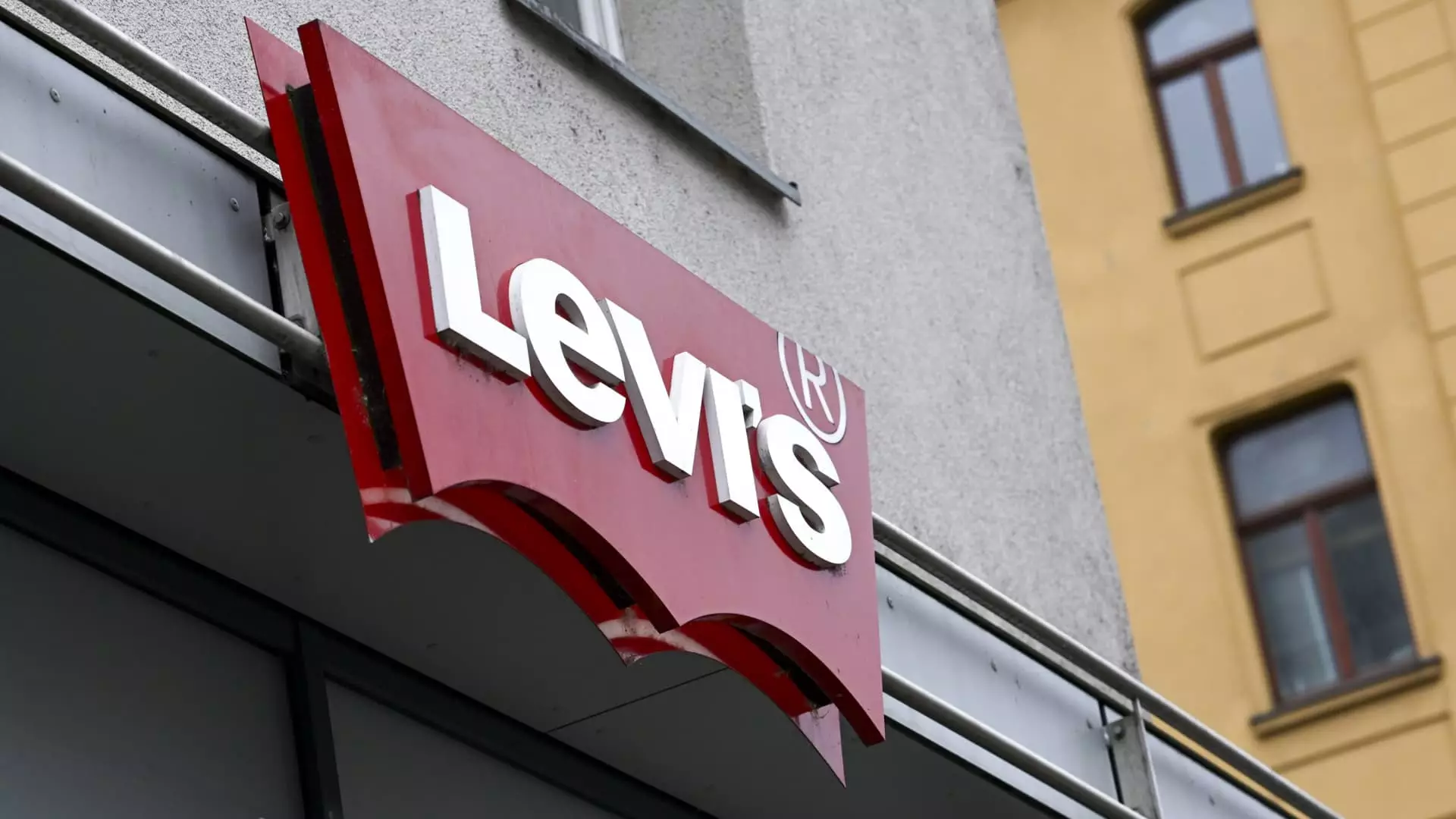The recent announcement of Levi Strauss selling its longstanding Dockers brand to Authentic Brands Group for $311 million marks a pivotal juncture not just for Levi’s, but for the wider fashion industry. This decision encapsulates both a retreat from the past and a bold forward-thinking strategy aimed at repositioning Levi’s in a rapidly changing retail environment. As consumers pivot back towards denim, Dockers, once among the staple alternatives, has found itself teetering on the edge of irrelevance. In this context, the sale is both a resignation and an opportunity—a fascinating duality in the fashion business.
From the outside, the transaction might seem like a mere financial maneuver, but it’s laden with strategic significance. Levi’s CEO, Michelle Gass, emphasized a direct-to-consumer strategy that aligns with modern purchasing behaviors—consumers are becoming increasingly discerning, looking for both quality and identity in their apparel choices. By shedding Dockers, Levi’s is shedding more than just a brand; it is shedding an identity that no longer serves its progressive vision.
The Nostalgia Versus Modernity Dilemma
Launched in 1986, Dockers came to symbolize a period where khakis were the epitome of casual sophistication in America. However, this once widely embraced fabric has since fallen out of favor, making the brand synonymous with a bygone era rather than a trendsetter for today. Levi’s decision to divest Dockers represents a critical acknowledgment that nostalgia cannot alone sustain a brand amid shifting consumer preferences. The reality is stark: while Dockers may still have a fanbase abroad, especially in markets where khakis remain fashionable, the original American consumer has moved on—favoring jeans, athleisure, and more innovative styles.
Levi’s recognition of this reality is commendable, yet one can’t help but wonder if they could have revitalized Dockers instead of sidelining it. The brand’s potential for a renaissance could have been explored, perhaps through reimagined designs or collaborations—yet, that whispers of change were drowned out by the noise of financial performance.
The Role of Brand Management Firms
The integrity and future of Dockers now rest with Authentic Brands Group, a conglomerate adept at breathing life into distressed or outdated properties. Their announcement to leverage 1,700 licensing partners globally is an ambitious pledge. They assert that their strategy will not just aim to restore Dockers within stagnant American markets but also to exploit burgeoning opportunities in diverse international spaces. This ambition encapsulates a broader trend in the fashion industry—companies are looking beyond their borders to maintain growth.
However, there’s also a sense of skepticism that lingers. Can a brand rooted so deeply in American culture successfully evolve into a cosmopolitan icon? Authentic implies that the brand has untapped potential, a notion that could be valid. Nevertheless, the authenticity of Dockers’ American legacy must be handled with care. Inviting a new generation to embrace Dockers might require a delicate balance between respecting its roots and innovating for modern preferences.
Growth vs. Legacy: The Balancing Act
What’s clear from this transaction is that Levi’s determined to focus on where its real strengths lie: direct-to-consumer engagement, international expansion, and innovation in women’s and denim lines. It reflects a growing recognition that businesses need not just adapt to change but proactively instigate it.
While it’s a bold vision for Levi’s, one must question whether fully divesting from a brand that pioneered the khaki market is truly a victory for innovation. Could this be seen as a retreat from a challenge—redefining Dockers to meet new cultural aesthetics—rather than an embrace of creative opportunity? It may well be easier for Levi’s to pivot than revamp; but beneath the surface, could this shift signify a loss of industry heritage?
In sum, Levi Strauss’ decision to sell Dockers encapsulates the tension of the fashion world today. It underscores how innovation and brand legacy must coexist rather than compete. Authentic Brands Group now has the responsibility to either resurrect or reshape Dockers into something that resonates with today’s consumer—or risk further insignificance in a market that values both novelty and richness of history.


Leave a Reply